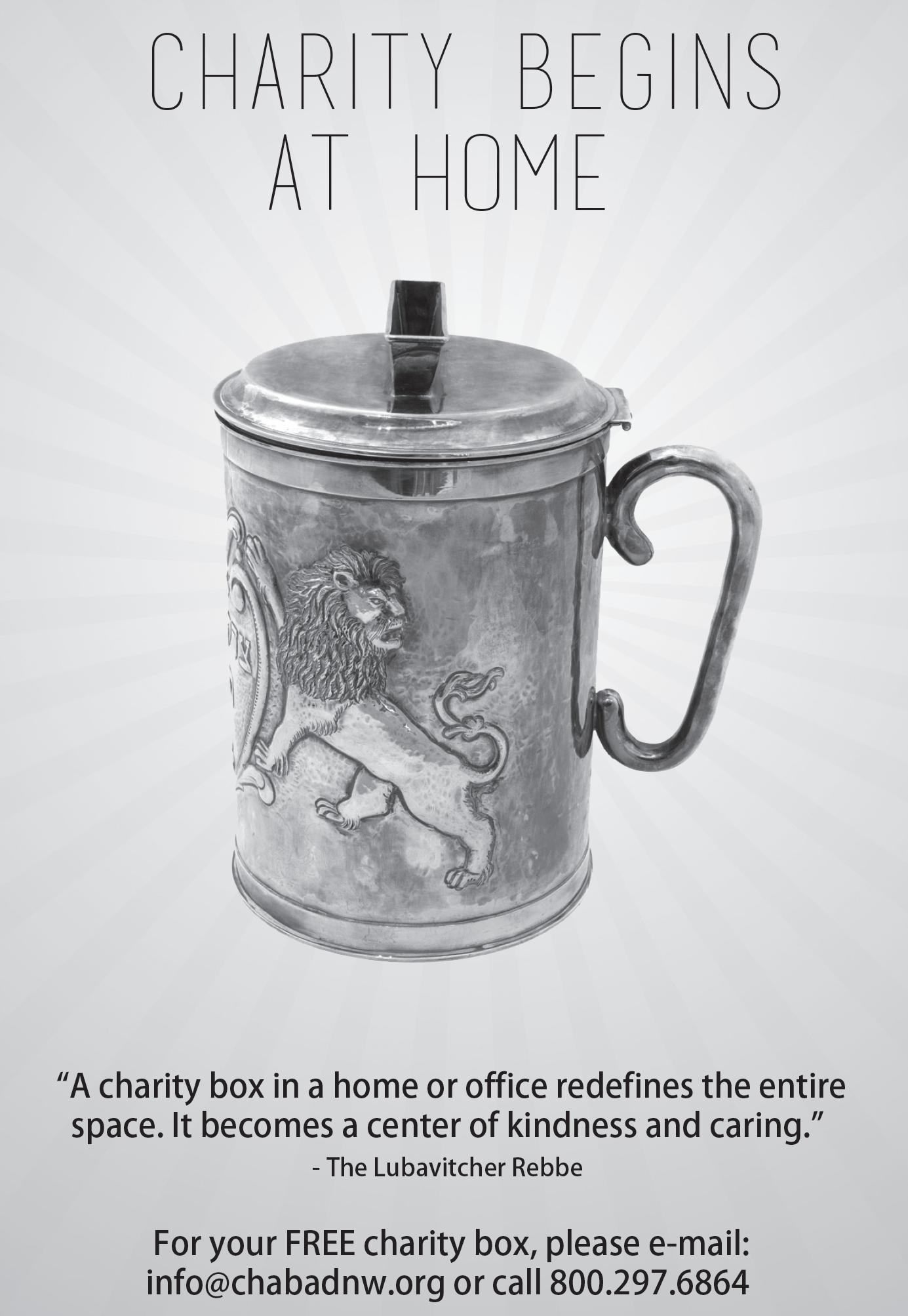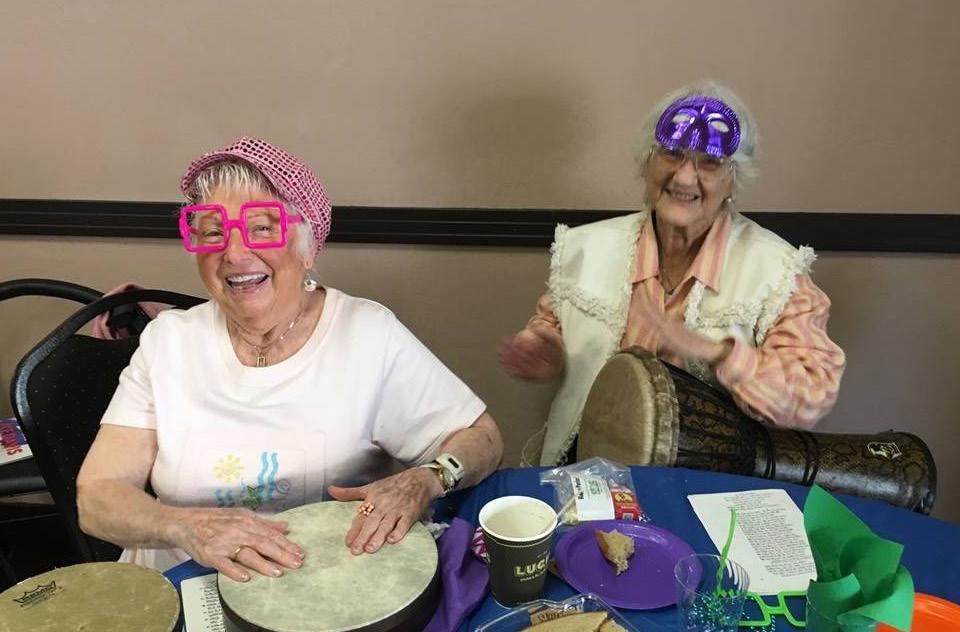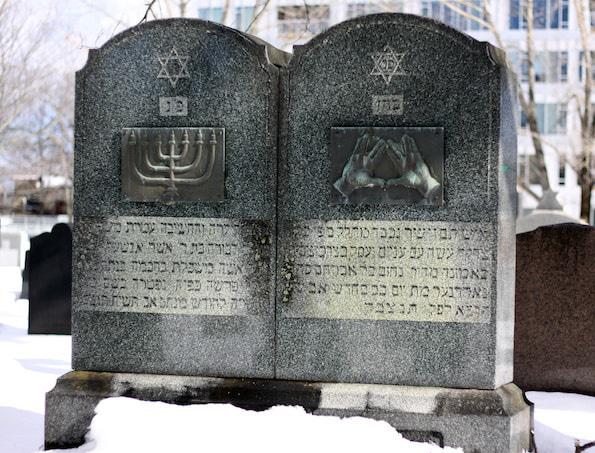
12 minute read
Our Mailbox
Dear Mina, I am working Tuesdays this month. Maybe in the spring. However, my likelihood of attendance is much higher in the morning. I am a big fan of the Torah. One of the speakers at your convention spoke of how things happen for a reason. (an understatement). In my one year at Yeshiva at age 15, I could actually read and translate not only Hebrew, but Rashi in Aramaic. It was a mystical experience like a special door I was able to walk through. It can’t really be explained in English. It is a flame I have carried in my heart. Also explains my passion for Israel. We are members of PRIMER, a group that combats lies and propaganda (BDS) by writing letters. But you are my link to Judaism so keep me in the loop, even if I don’t show up much. Carol Thomaston, CT
Dear Mina, First and foremost, thank you for sending me the link to Conference of Chabad-Lubavitch Women Emmissaries. It is quite enlightening. Second, What is the proper way for me to address you? I don’t want to disrespect you. Do I address you as Rebbetzin, Rebbetzin Mina, Mina, what? Let’s go back to the past High Holidays. When your husband, the Rabbi, had a group discussion, I had brought up the subject as to why women don’t wear a Tallit and I believe your oldest daughter answered. the question, which I’m quite thankful for. I continue to learn so much about Judaism from your Chabad website and from asking questions. I wish to thank you, your husband, the Rabbi and your daughters for helping me with my education. Please thank your daughter for me for being patient with me. Kenneth Burlington, CT
Advertisement
Dear Rabbi, Thank u! Wow. We cannot thank u enough. Avi is doing GREAT! He is so happy! AND, every time I talk to him he asks when he can come to you for Friday night. He really felt so comfortable and loved being with u and ur family. Julie. Bethlehem, C
WINE,BEER & SPIRITS
Hi Mina, We had a good time this morning at the Talis and Tephillin Club. Elizar was thorough, and we did the entire Parsha including the commentary, with some explanation by him too. That was what we called it when I attended it on Sundays after my Bar Mitzvah at xxxxx Jewish Center and the men’s club would provide a great breakfast of bagels and lox. In those days I would eat 2 of them easily. Have a good week and Stay well. I’m looking forward to the weekend. Mal, Torrington, CT
Hi Lauren, I know you spoke to xxxxxx about my possibly coming to services at Chabad. I just wanted to touch base with you regarding that. My family belongs to Chabad of Westport, so I felt that because I am not going home, a little familiarity would be nice. As far as transportation, I could uber to services unless you had a different thought. Please let me know! Thank you so much for your help! Jess, Middlebury,CT
ה"ב ה"ב
The perfect balance of selection and price.
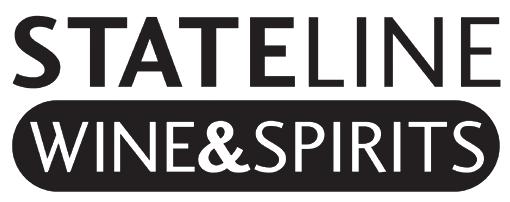

www.statelinewine.com 13 EAST MAIN ST, CANAAN NEXT TO STOP & SHOP PHONE 860.824.7295 www.ledgebrookwines.com ROUTE 44,WINSTED NEXT TO STOP & SHOP PHONE 860.379.4216
Mon - Thurs 9am-8pm Fri - Sat 9am-9pm Sunday 10am-5pm
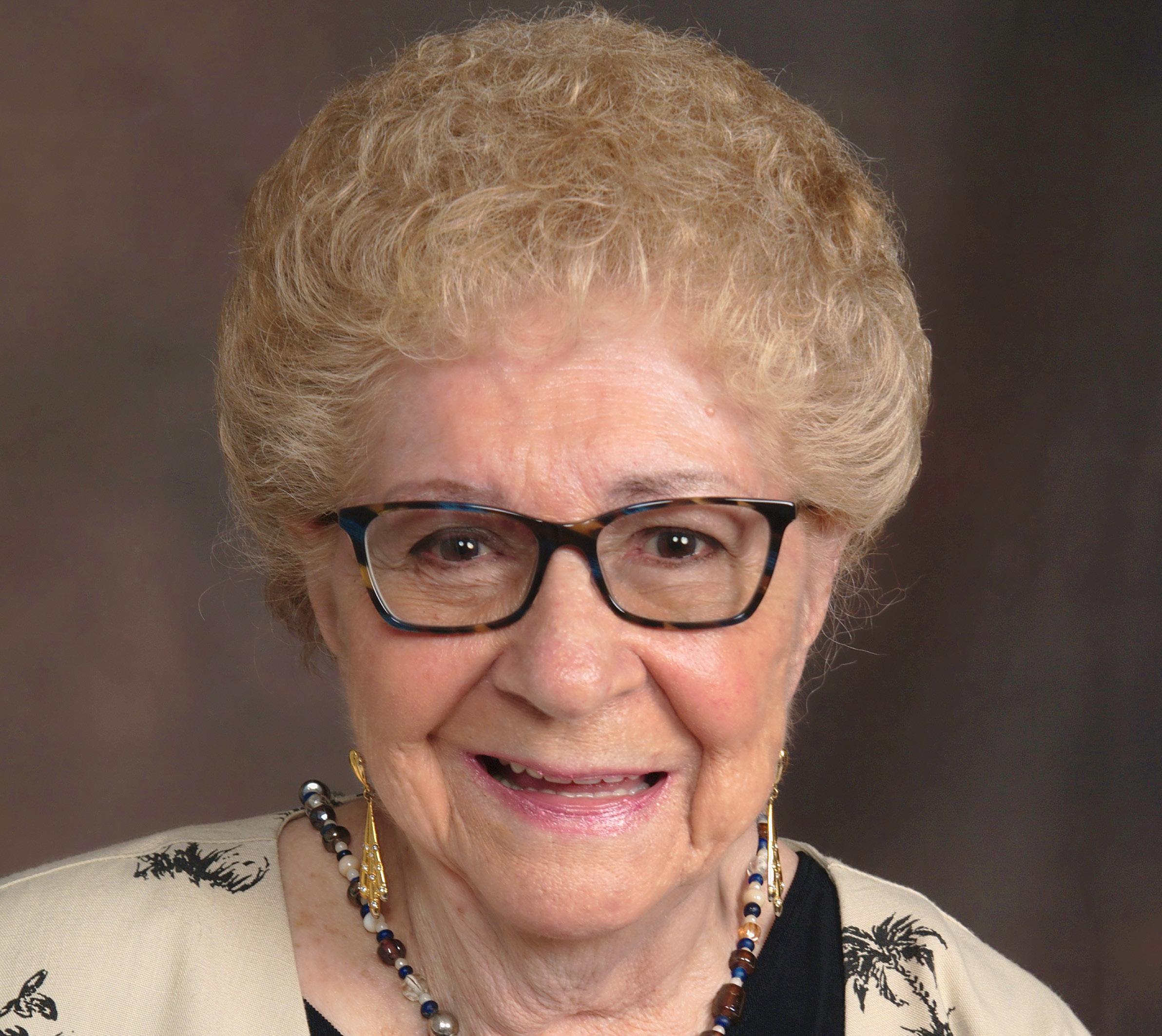
Join Myrna in securing a Jewish future. Remember Chabad in your will.
For more information on planned giving: 718.467.4400 | www.website.com/plannedgivingChabadNW.org/Plannedgiving 860.567.3377 | Legacy@chabadNW.org
chabad enters its 25th year in northwest ct
continued from page 1 in the world, with over 2,700 branches spanning the globe. Chabad embraces a philosophy of study, meditation, and social outreach that combines rigorous academics with active community involvement. Chabad’s growing array of educational and social services programs has made it one of the most dynamic forces in modern Jewish life.
“Chabad” is a Hebrew acronym for “Wisdom, Understanding, and Knowledge,” and Lubavitch is the town in White Russia where the movement was based for more than a century. (The world “Lubavitch” actually means “brotherly love,” which is emblematic of the dedication that characterizes Chabad Lubavitch and its representatives.) Founded in 1772 by Rabbi Schneur Zalman of Liadi, Chabad promotes the mystical, traditional, legal and social principles of the Torah — while using modern methods and technology for education, community outreach, crisis intervention, and other social services.
Chabad has consistently been at the forefront of Jewish education and community activism. The work of Rabbi Menachem Mendel Schneerson, the Lubavitcher Rebbe who assumed leadership of the movement in 1950, is legendary. Motivated by a profound love for humanity and spurred by boundless optimism, the Rebbe lifted the global Jewish community from the ashes of the Holocaust and launched an unprecedented range of Jewish institutions, outreach programs and social services.
Around the globe, more than 4,600 of the Rebbe’s emissaries and a workforce of over 20,000 continue his mission to create a world of goodness, kindness and G-dliness. To learn more about Chabad, please visit ChabadNW.org
MESSAGE FROM THE LUBAVITCHER REBBE
continued from page 5 sions to Judaism! So strongly did the Jews radiate their faith in G-d and their confidence in His salvation, that many of their neighbors were motivated to join a people with such a powerful and immutable relationship with G-d.
This is how our Sinaic covenant with G-d was validated on Purim. This time, the divine presence did not hover over us, compelling us to recognize its truth. On the contrary: the divine face was hidden. We were on our own, our commitment to G-d stemming wholly from within, from an inner choice to cleave to Him regardless of how invisible He remained to us.
The Proof
This is not to say that on Purim a new, valid contract replaced the original, “contestable” one. If that were the case, what was the point of the revelation at Sinai? Certainly, the Torah was a binding commitment between ourselves and G-d for the 950 years from Moses to Esther. Rather, as the Talmud interprets the Book of Esther, “They fulfilled what they had already accepted”: Purim was the fulfillment and corroboration of a truth that had already been established at Mount Sinai.
That truth is that our relationship with G-d is not bounded by reason. It is not dependent upon our understanding of it, or even upon our conscious awareness of its existence. It transcends our conscious self, residing in the very core of our souls.
This is the deeper significance of why we were “compelled” to receive the Torah at Mount Sinai. Not because we would not have freely chosen to do so on our own, but because a consciously chosen commitment could not begin to express the true extent of our acceptance of the Torah. Our covenant with G-d extends beyond the finite world of our conscious desires, embracing the infinite expanses of our supra-conscious self—the supra-conscious self that always “sees” G-d and is unequivocally aware of His truth. At Sinai, this supra-conscious self was revealed. Our conscious self, comprising but a minute corner of our soul, was completely overwhelmed and its “choice-making” mechanisms were completely silenced.
This was the true significance of what occurred when we “stood beneath the mountain.” But for many centuries, the events at Sinai were open to misinterpretation. In our own minds, we remembered the event as a time when we were overwhelmed by the divine truth and compelled to accept it. Did this come from within, from a place in our souls not accessible by the conscious self? Or perhaps it came from without, from an external force which coerced us, against our own true will, into our covenant with G-d?
Then came Purim, with its total eclipse of all perceivable G-dliness. To remain a Jew, to remain loyal to our covenant with G-d, was a choice uninfluenced by any supra-conscious revelations. By choosing to accept the Torah under such circumstances, we affirmed that this is the true will of the Jew. We affirmed that our “coercion” at Sinai was not against our will, but completely consistent with what we truly desire. The Willful Mitzvah
Thus Purim revealed a new dimension to our observance of Torah, establishing it as a freely elected way of life, as opposed to a set of compelling duties. And this thousand-year difference is reflected in several of the mitzvot of Purim.
The festival observances are usually specially ordained mitzvot unique to their festival, such as sounding the shofar on Rosh HaShanah or eating matzah on Passover. But there are two Purim observances about which there appears to be nothing “original,” for they seem to be only extensions of general, year-round precepts of the Torah.
On Purim we send gifts of food, called mishloach manot, to friends and neighbors in order to promote fellowship and love between us. Another Purim mitzvah, mattanot la’evyonim, is to seek out a minimum of two paupers and give them gifts of money. But to “love your fellow as yourself” and to give charity are year-round duties for the Jew. What makes these distinctly Purim observances?
But the Torah does not obligate us to initiate gestures of friendship or to seek out the needy. The commandment “Love your fellow as yourself” only mandates that when you do come in contact with your fellow, you treat him with love and respect. The laws of charity mandate that when a needy person asks for your help, you are obligated to render assistance. What is unique about the way we fulfill these mitzvot on Purim is that we actively seek out opportunities to do so. For Purim emphasizes our desire to fulfill the commandments of the Torah. Also one who does something only out of a sense of duty may do the deed properly and wholeheartedly; conceivably, two individuals may be doing the same thing, one of them out of a deep-felt desire to do so and the other because he feels obligated, and we may not be able to tell the difference between the two. But what if no obligating circumstances exist? Does one pursue the deed and seek to obligate oneself? Here is where the difference is revealed—this is what distinguishes the willing, desirous actor from the merely obedient one.
The Purim mitzvot of mishloach manot and mattanot la’evyonim highlight the “choice” element in our relationship with G-d: that this is a relationship not only bound by ties of duty but also cemented with the bond of will.
internationaL conference convened in brookLyn
continued from page 1 learned from professionals and colleagues with years of experience.
Dini Freundlich—co-director of Chabad of Beijing, China, with her husband, Rabbi Shimon Freundlich—served as keynote speaker at the conference’s gala banquet on Sunday night, and described Chabad’s role in serving communities facing the COVID-19 coronavirus in China and in other affected locales around the world.
In addressing the integral role of a shlucha, Freundlich said that “as women, we have every ability to be part of the mission and dream of the Rebbe [Rabbi Menachem M. Schneerson, of righteous memory]. We should each find areas we shine in—our creative side, social side, academic side—each woman and each of her daughters.
We all have a responsibility to make the world a better place, to spread the love and warmth and message of the Rebbe.”
They speak a variety of different languages, range in age from early twenties to late seventies, and hail from 100 different countries, but these 3,100 convened in Brooklyn with one purpose in mind.
The women, leaders in their February 17.
In 1991, there were about 1,000 women at the inaugural Conference which convened at a wedding hall in Crown Heights. Exponential growth in the ranks of Chabad
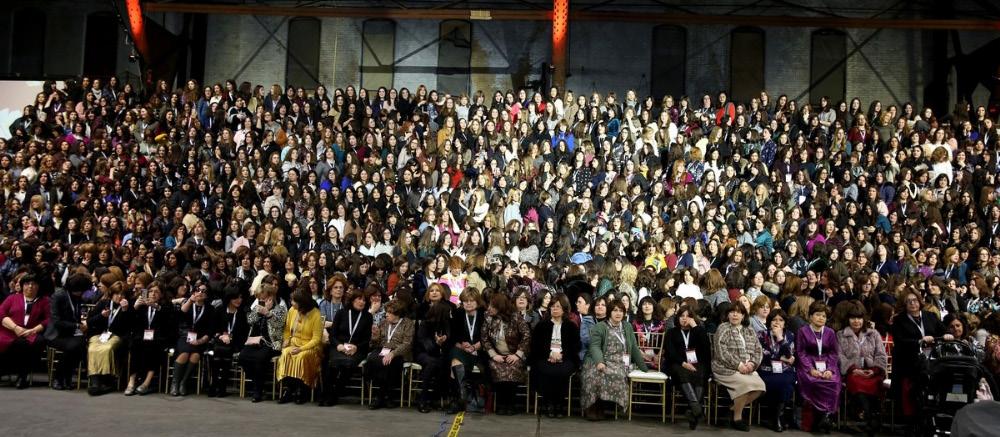
communities, large and small, are participating in a pivotal event on their calendar, the annual International Conference of Shluchos (Chabad Representatives). The “kinus” as it is known, is held each year on the weekend before the anniversary of the passing of the matriarch of the modern-day Chabad-Lubavitch movement, Rebbetzin Chaya Moussia Schneerson, on the twenty-second of Shevat, this year corresponding to Monday, representatives around the world in recent decades has made finding a big enough space quite the challenge, and this year’s program wa held at the New York State Armory. The Conference featured parallel tracks in Hebrew, English and French, designated programs for representatives stationed on University Campuses and for those directing Hebrew Schools and preschools and guest programs for community members joining their Rebbetzins.
Their daughters between the ages of 8 and 14 participated in a sleepaway camp style program. For some serving the smallest, most outlying communities, where their social set is limited, the experience of spending several days with hundreds of like-minded peers is a delightful novelty.
The conference featured lectures by veteran representatives and professionals, and intimate workshops on themes from “Feminism In 2020,” to “Shlichus After 45.” A menu of sessions exploring the gamut of related topics, like “Technology As A Teaching Tool,” or “Traversing The Turbulent Teen Years,” were scheduled back to back over the course of the conference.
The keynote address at Sunday’s gala banquet was delivered by Mrs. Dini Freundlich from Beijing, China. Representatives serving in remote locations like Boquete, Panama; Takayama, Japan; Turks and Caicos Islands and West Lafayette, Indiana led a roll call of representatives by country.
suPPorters gather to Pay tribute to chabad at annuaL awards dinner
continued from page 1 of commitment by honoring some of its staunch supporters and taking a whimsical look at the differences between then and now. “When we were first sent to Northwest Connecticut in 1996 with the inspiration of our beloved Rebbe, the Lubavitcher Rebbe, of blessed memory,” remarked Rabbi Joseph I. Eisenbach, “people asked us what we were doing here. Today, we have become an established presence in the community, recognized as a center of activity, infusing Jewish life with meaning and joy.”
Attendees celebrated Chabad’s accomplishments at the gala event, which attracted people from all walks of life, including Chabad’s core supporters and friends. Rabbi Joseph I. Eisenbach was delighted to introduce the crowd to the well deserved honorees. Among those recognized for their commitment to Chabad and the community were Mr. Nate Zimmerman of Northwest Corner Properties and Mr. Levi Yudkin.
The evening began with an elaborate cocktail reception and silent auction, followed by an elegant dinner. A highlight of the event was a musical interlude featuring a string quartet of the Waterbury Symphony Orchestra playing Songs of the Inspired Souls with a corresponding video presentation.
Rabbi Joseph I. Eisenbach and his wife Mina who serve as the co directors of Chabad Lubavitch of Northwest Connecticut, thanked everyone for participating in the dinner and for their unwavering support over the years. To view more photos of the dinner, please log on to www. chabadnw.org
